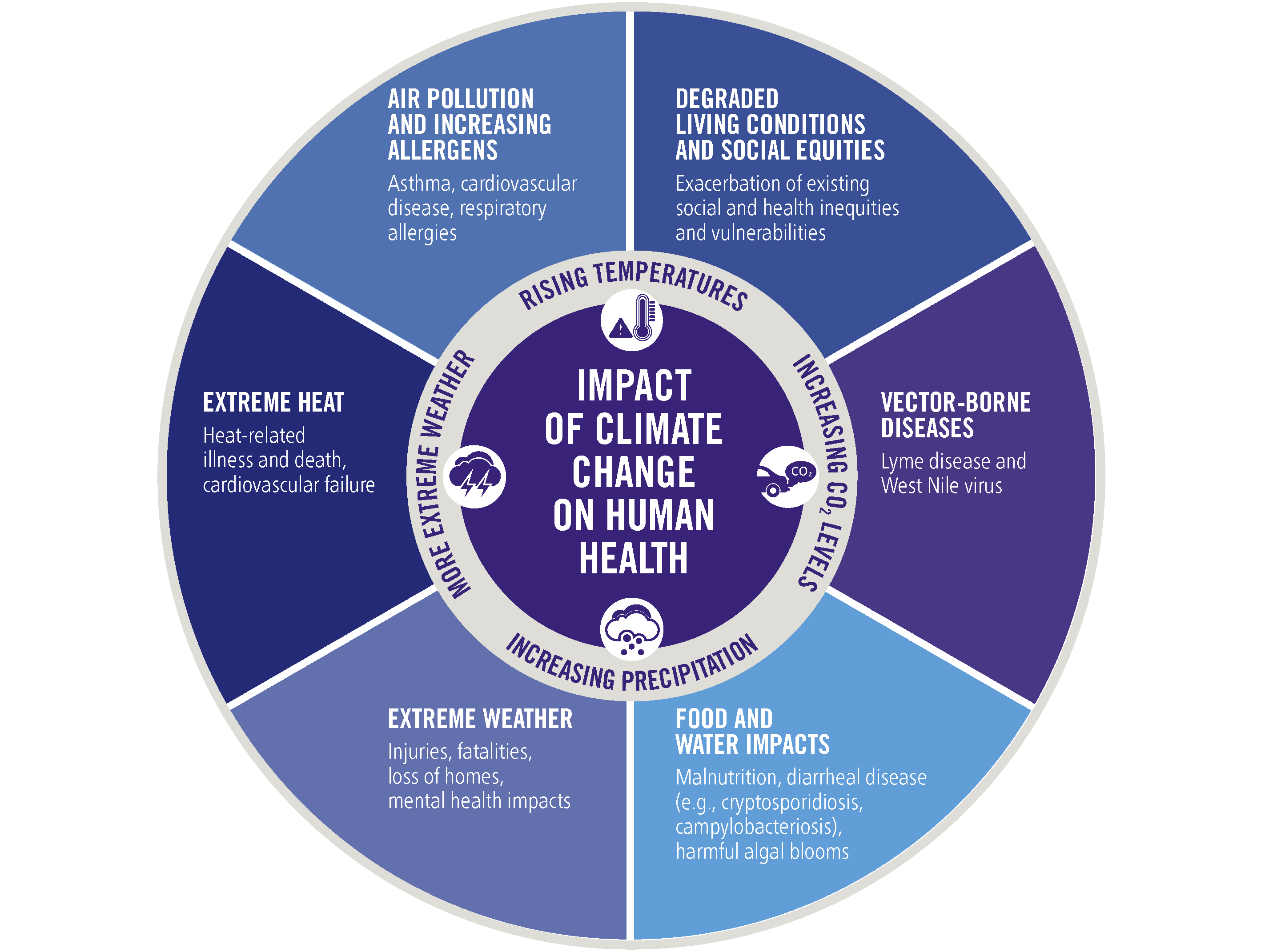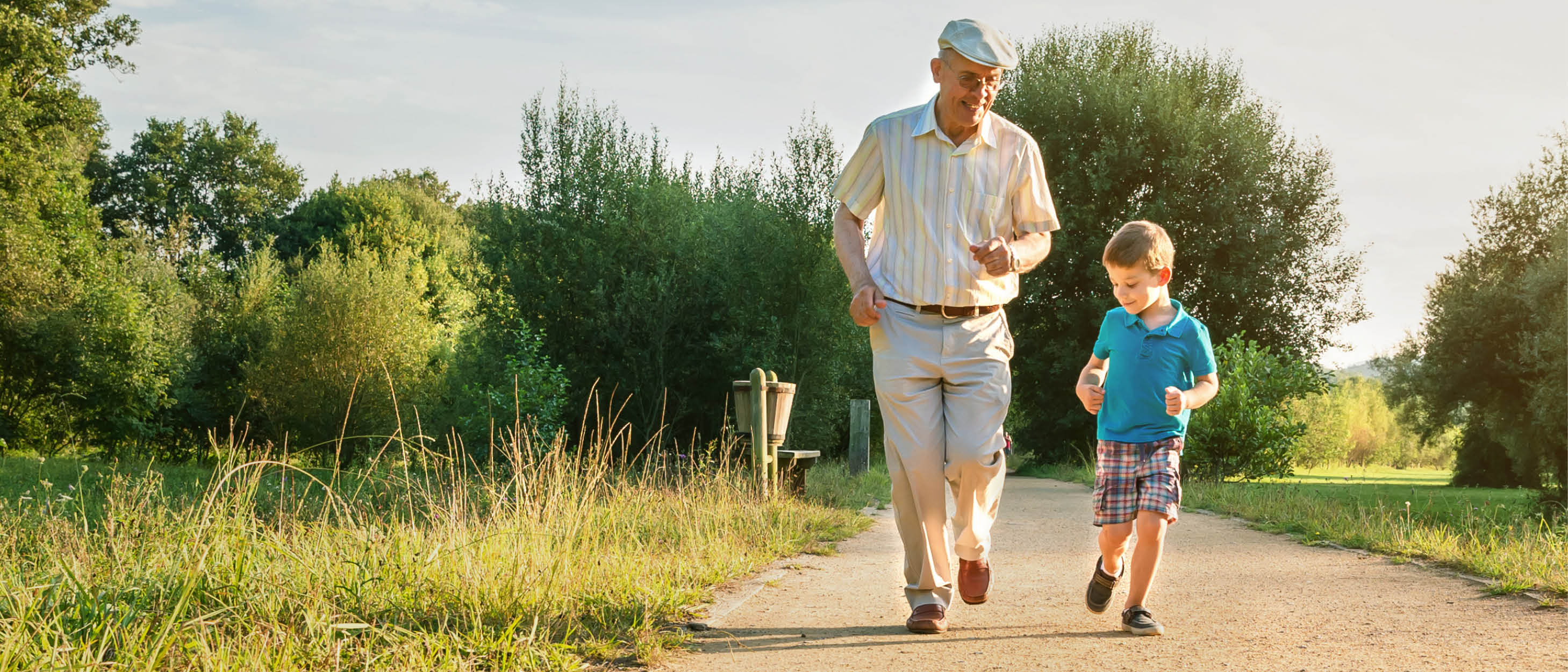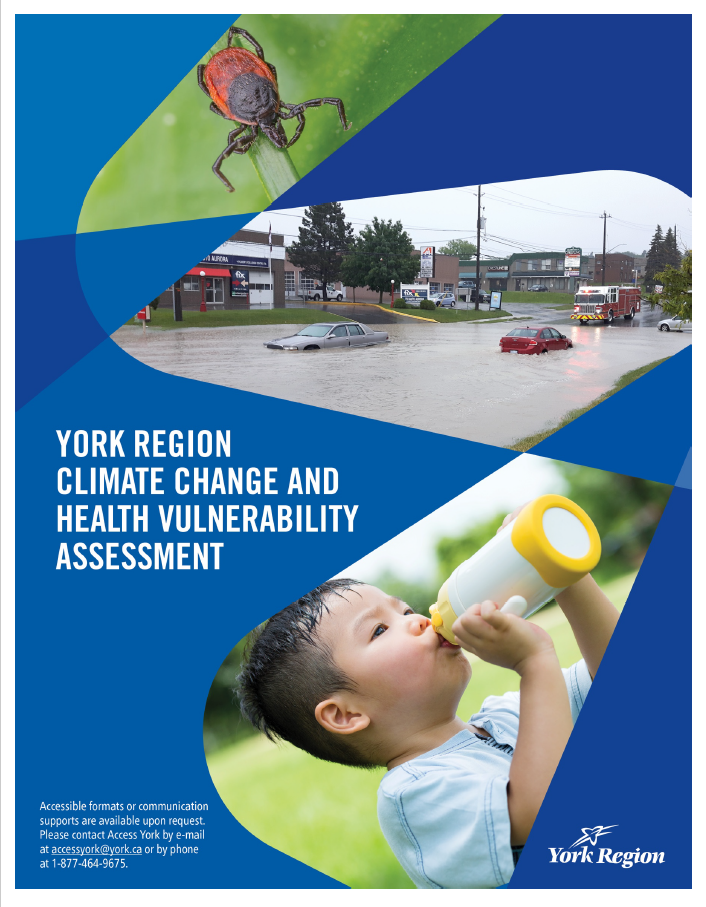Climate Change and Health
Our climate is changing, with rising surface temperatures, melting ice and snow, rising sea levels, and increasing climate variability. Here in Ontario, we already experience some of these effects and scientists predict we will continue to see even more in the future.
Changes to the air we breathe, the water we drink, the food we eat and the places we live may have substantial impacts on human health. Extreme changes in the weather and environment can increase existing health problems, as well as create new ones. The picture below shows the many ways a changing climate can impact health. It is crucial we are prepared and ready to act on climate change.
Ways climate change can affect our health

Impact of Climate Change on Human Health Infographic
People at greatest risk
Although anyone can experience the effects of climate change, some groups such as seniors, young children, people with chronic diseases, people experiencing low incomes and people who work or exercise outside are more at risk than others.

What is York Region Public Health doing?
York Region Public Health has many programs and services to address the current and future health impacts of climate change including:
- Tracking weather, temperature and air quality that can impact the public
- Checking places like trails, parks and ponds for ticks or mosquitoes that can carry diseases
- Ensuring the safety of food and water by checking public beaches, private wells and places that serve food
- Tracking diseases to prevent the spread to other residents
- Giving helpful information to the public on protecting their health from climate-related issues such as extreme heat, Lyme disease, beach safety and more
Climate Change and Health Vulnerability Assessment
York Region Public Health has completed an assessment on how climate change may impact health in York Region in the future. The report looks at how our communities can be better prepared as our climate changes. To learn more about the health impacts of climate change in York Region, click the links below.

- Chapter 1: Introduction
- Chapter 2: Methods
- Chapter 3: York Region Context
- Chapter 4: Vulnerable Populations
- Chapter 5: Changing Temperatures: Extreme Heat and Cold
- Chapter 6: Extreme Weather Events
- Chapter 7: Air Quality
- Chapter 8: Vector-Borne Diseases
- Chapter 9: Water Safety
- Chapter 10: Food Safety and Security
- Chapter 11: Next Steps
Bridging the Gap: Engaging York Region Residents and Stakeholders to Build Climate-Resilient Communities
As part of Health Canada’s HealthADAPT program, York Region Public Health conducted a project to help us better understand the needs of York Region residents when it comes to climate change and health. It also examined the needs of stakeholders and service providers to support climate change adaptation. This information will guide how we can support our residents and communities become more resilient to future health impacts from climate change.
For more information on the project findings, click the links below.
The views expressed herein do not necessarily represent the views of Health Canada
Climate actions you can take
Climate change requires everyone to get involved —individuals, government, industries and communities. You can make a difference!
It is important we take action today to lower our greenhouse gas emissions and be ready for future climate change impacts. Here are some actions you can take:
- Get informed – Understand the risks and what you can do to protect your and your family’s health from climate change impacts such as extreme heat, outdoor air, Lyme disease and West Nile virus
- Be prepared – It is important to be ready for future events like flooding, ice storms, or other events that can impact your home or lead to power outages in your neighbourhood. Check out York Region’s Emergency Preparedness Guide to help be more prepared.
- Do your part for the environment – There are many things you can do to help reduce your greenhouse gas emissions, such as:
- Conserve energy and use green/renewable energy when possible
- Take transit, walk, carpool or cycle more often and use motor vehicles less. Check our cycling and transit options in York Region
- Buy fresh food at your local farmers’ market or join local food programs
- Join community tree planting events or plant native trees and plants on your property. Visit Local Enhancement & Appreciation of Forests to learn about a subsidized backyard tree planting program
For more information on climate change and health, contact Health Connection at 1-800-361-5653 or dial 711 with a TTY device or email [email protected]


